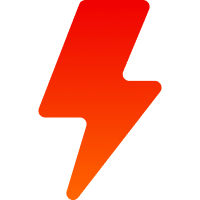Etsy vs. Shopify: Choose the Right Platform for Your Online Store
Table of Contents
- Introduction
- Comparison between Etsy and Shopify
2.1 Pros of Shopify
2.1.1 Ability for customization
2.1.2 Integration with payment providers
2.1.3 Availability of apps
2.1.4 Access to marketing data
2.1.5 Ideal for creating a brand
2.2 Cons of Shopify
2.2.1 High fees
2.2.2 Lack of support
2.2.3 Steeper learning curve
2.2.4 Responsibility for driving traffic
- Pros of Etsy
3.1 Access to a ready-made marketplace
3.2 Easy to get started
3.3 Built-in features and tools
3.4 No need for a fully developed brand
3.5 Traffic-driven by Etsy
- Cons of Etsy
4.1 Limited customization options
4.2 Limited payment provider options
4.3 High competition
4.4 Restrictions on the types of products
- Recommendation for beginners
- Conclusion
Etsy vs. Shopify: Which Platform is Right for Your Online Store?
Starting a side hustle or an online store can bring great opportunities for entrepreneurs. However, deciding between selling on Etsy or Shopify can be quite challenging, as both platforms have their own advantages and disadvantages. In this article, we will compare and contrast the pros and cons of each platform to help you make an informed decision on where to start your online store journey.
1. Introduction
Are you looking to start an online store but confused between choosing Etsy or Shopify? This article aims to provide you with a comprehensive comparison between the two platforms, highlighting their pros and cons. By the end, you will have a clear understanding of which platform is better suited for your business needs.
2. Comparison between Etsy and Shopify
Before diving into the advantages and disadvantages of both platforms, let's start by comparing Etsy and Shopify. These two popular e-commerce platforms have distinct features and cater to different types of businesses. Understanding their differences will help you make an informed decision.
2.1 Pros of Shopify
2.1.1 Ability for customization
Shopify allows for extensive customization of your online storefront. Whether you choose from pre-designed templates or opt for fully customized designs, Shopify provides the flexibility to create a unique and visually appealing online store. This helps your store stand out from the competition.
2.1.2 Integration with payment providers
Shopify offers integration with a wide range of payment providers, giving your customers multiple options to make purchases. This flexibility can enhance the overall shopping experience and increase conversion rates.
2.1.3 Availability of apps
Shopify boasts a vast marketplace of apps that can enhance your store's functionality. These apps can help you entice sales, improve your store's appearance, and provide additional features such as contest wheels, better email newsletters, upsells, and reviews.
2.1.4 Access to marketing data
If you are focused on marketing, Shopify provides you with detailed data to run with. By integrating with Google Analytics and setting up proper tracking, Shopify offers valuable insights to make data-driven marketing decisions and optimize your campaigns.
2.1.5 Ideal for creating a brand
If you aim to build a distinct brand with emotional connections, Shopify is the better choice. Unlike Etsy, where products are often searched individually, Shopify allows you to create a branded online store experience. This branding opportunity enables you to charge higher prices for your products.
2.2 Cons of Shopify
2.2.1 High fees
One of the notable downsides of Shopify is the high fees associated with the platform. In addition to processing fees and payment provider fees, Shopify charges monthly subscription fees. For beginners, this means investing money before making any sales, which can be financially challenging.
2.2.2 Lack of support
Unlike Etsy, Shopify does not provide extensive support for managing customer issues. Without dedicated support or customer assistance, handling customer-related problems and refunds becomes solely your responsibility as a seller.
2.2.3 Steeper learning curve
For beginners in the online world, getting started with Shopify can be more challenging compared to Etsy. Shopify requires more knowledge and understanding to create a successful store. Although both platforms have a learning curve, Shopify's curve is steeper.
2.2.4 Responsibility for driving traffic
Shopify places the responsibility of driving traffic to your store solely on your shoulders. To make sales, you need to invest time or money in social media marketing or paid ads. This outbound marketing approach involves reaching out to potential customers and convincing them to purchase your products.
3. Pros of Etsy
3.1 Access to a ready-made marketplace
One of the biggest advantages of selling on Etsy is the access to a ready-made marketplace. With millions of Etsy users actively searching for products, you benefit from the visibility and organic traffic the platform provides. You can tap into a pool of customers who are already searching for products similar to what you offer.
3.2 Easy to get started
Etsy makes it incredibly easy to set up an online store, especially for beginners. With pre-built features and templates, you can quickly create your branding and listings, allowing you to start selling within a day. This simplicity eliminates the need for extensive technical knowledge.
3.3 Built-in features and tools
Unlike Shopify, Etsy offers many built-in features and tools without additional charges. You can leverage these features such as reviews, payment processes, and upsells without worrying about integrating or paying for them separately.
3.4 No need for a fully developed brand
A unique aspect of Etsy is that you don't need to have a fully developed brand before starting. You can experiment with various niches and products to find out what resonates with customers. Additionally, on Etsy, customers primarily focus on individual listings rather than your storefront, giving you more flexibility and a chance to optimize your store gradually.
3.5 Traffic driven by Etsy
Etsy takes care of driving traffic to your store, allowing potential customers to find you. This inbound marketing approach means people are already searching for products like yours, and you don't need to convince them of the need to make a purchase. Etsy's marketplace eliminates the extra effort and expenses of outbound marketing.
4. Cons of Etsy
4.1 Limited customization options
While Etsy simplifies the store setup process, it also limits the customization options available to sellers. Unlike Shopify, where you can design and code your online store to a greater extent, Etsy only allows customization in terms of branding and listings. This restricted flexibility may not suit those looking for complete design freedom.
4.2 Limited payment provider options
Etsy has limited options when it comes to payment providers. While Shopify allows integration with multiple providers, Etsy mainly works with credit cards and PayPal. If you prefer using different payment processors, it might be challenging to bring them into your Etsy store.
4.3 High competition
Since Etsy is a popular marketplace, competition among sellers is high. With thousands of sellers offering similar products, standing out and convincing potential customers becomes more challenging. To succeed on Etsy, you need to find unique ways to differentiate yourself from competitors.
4.4 Restrictions on the types of products
Etsy has restrictions on the types of products you can sell. Unlike Shopify, where you can engage in dropshipping, Etsy allows only selling products you make or have designed. This limitation might be a drawback for sellers looking to explore other product sourcing options.
5. Recommendation for beginners
If you are a beginner and unsure of your brand or the products you want to sell, starting on Etsy is recommended. Etsy allows you to test different niches and product ideas. By analyzing what sells well, you can gradually tailor your store to attract more customers. Once you have established your brand and identified successful products, you can consider expanding to a branded Shopify store to supplement your Etsy sales.
6. Conclusion
In conclusion, both Etsy and Shopify offer unique advantages and disadvantages for online store owners. While Shopify provides greater customization options and scalability, Etsy offers a ready-made marketplace and minimal setup requirements. Consider your business goals, resources, and preferences when choosing between the two platforms. Remember, there's no one-size-fits-all solution, and understanding your business model and target audience will help you make an informed decision.






















